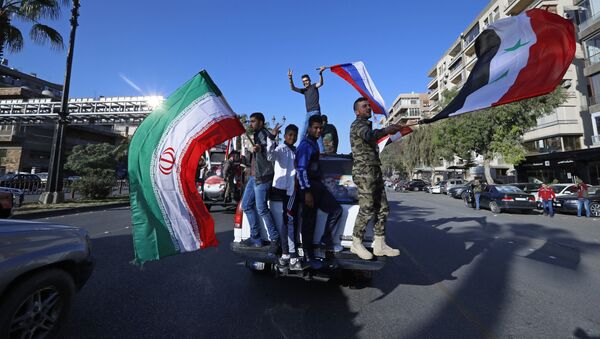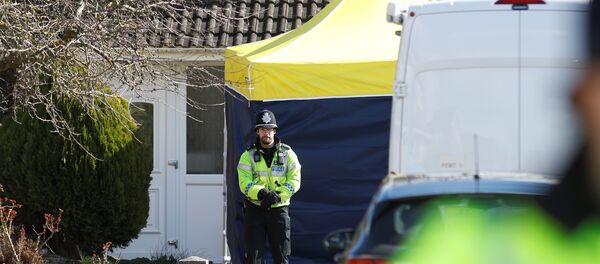Sputnik: What was your reaction when you first learned about the accusations over your work?
Piers Robinson: I think it's very important to recognize the bigger picture in this, what we are, the Working Group on Syria, Propaganda, is a working group, a collection of academics who are interested in researching questions regarding propaganda in media and the war in Syria, and what has happened with The Times newspaper is really a very obvious smear attempt accusing us of being Assad apologists, etc.
And it's really being designed to discredit and to stop up us from researching what are very important issues, and for us as academics in a democracy, in a free country, that's our job to ask critical questions, to contribute to public debate, to encourage people to read and think about critical opinions, to actually evaluate their strength.
READ MORE: WATCH Ex-Pink Floyd Member Slams Syria's White Helmets as 'Terrorist Propaganda'
This is our job as intellectuals and academics and really the thrust of The Times' attack on us is ultimately one which is inhibiting our ability to do our job, it's inhibiting or ability to ask the kind of critical questions which academics need to ask, and to be fair, journalists, and the public should be asking of their government, and I think it really needs to be seen in that light. This is an attempt to stop us or distract from the issues which we're raising.
Sputnik: So what's your overall attitude towards Western intolerance to opinions that differ from theirs?
Piers Robinson: There is widespread questioning in relation to Western foreign policy in Syria and there a credible people, for example, following the Douma attack, we've had two ex-British military I believe talking in the mainstream media, questioning British government narratives regarding Douma.
You have notable commentators such as Peter Hitchens in the Daily Mail raising questions about Douma, so there's a lot of questioning of what's going on in the public and increasingly within the establishment.\
READ MORE: Telegram Channel Run by Teenager Blocked in Italy Over Daesh Propaganda
I think that really shows you very, very clearly that the kind of questions that we're asking are extremely important, and going back to The Times, I think everyone should just ask themselves why is it, that a small group of academics should be subjected to that kind of attack on the front page of a newspaper, doesn't it tell people something that quite possibly we're on to an issue which has got powerful actors in the British government and so on, very, very concerned.
We've had a whole series of conflicts where actually with Iraq and Libya it's now been established even at the political establishment level that there were huge problems with the claims made by the British government in the case of Iraq, WMD, in the case of Libya the allegations that the Libyan government was about to start carrying out mass killings of civilians.
We know that these were incorrect and the question now I think we have to start asking ourselves and the mainstream media in the West needs to start asking itself on whether it's really been doing its job, at the end of the day, of really holding governments to account, because we're a long way into a series of military conflicts some of which have been clearly instigated, some of them have been fueled by Western governments.
READ MORE: #TrumpTV: Sinclair Broadcasting ‘an Unofficial Propaganda Outlet' For Trump
And I think we're reaching a point where the awareness of that is becoming widespread and I think politicians and the media are going to have some very tough questions to ask when academics, such as myself and others in the working group start to have the time to actually analyze how the media has performed, how the governments, what kind of info operations, what kind of propaganda operations they have been engaged in.
Sputnik: How do you assess the Western response overall? And how questionable are the actions considering the body of evidence they have to justify their move, I know you've mentioned quite a few things, how would you summarize it all together?
Piers Robinson: At the moment there's a common debate in Britain, I understand that Corbyn is going to challenge the British government on the legality of the bombing, I think they are in a very weak position. The airstrikes were launched prior to the OPCW even being able to go into Douma and that is an extraordinary situation, the parliamentary approval was not sought by the British government and so there are huge legal questions here for a start.
This raises big questions about what really is the motivation here, about whether or not the events in Douma are being used in order to gain an escalation in Syria or some kind of great military action that is part of a broader objective in the Middle East.
The views and opinions expressed by Piers Robinson are those of the speaker and do not necessarily reflect those of Sputnik.


